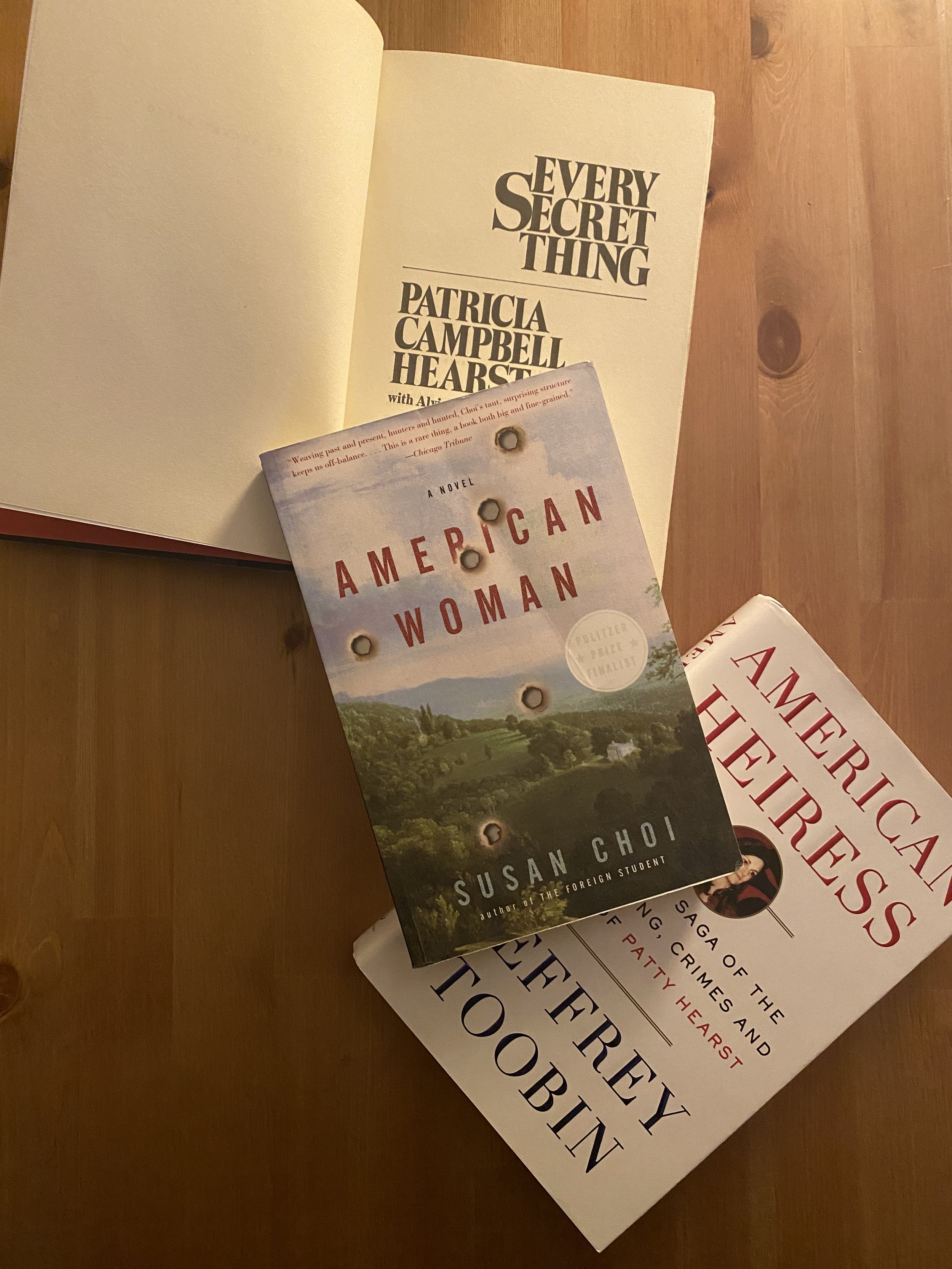Five-Star Reread: An Ode to ‘American Woman’
In the last official Sunday Missive of 2023, I mentioned that I was reading American Woman by Susan Choi, an old favorite of mine. Since this is a reread and thus doesn’t count as part of the Moratorium Library, it didn’t get the usual review treatment. But the book is important enough to me that I decided it deserved its own dedicated post.
If memory serves, I came across this book while I was working at Pegasus. I was looking for comp titles for a true crime book about an heiress named Rose Dugdale, whose life parallels Patty Hearst’s in some very specific ways——though Rose chose to become a revolutionary and fought with the IRA, including plans to steal priceless artwork and, oh yeah, a fucking military helicopter.
Anyway, I was either looking for sales or cover comps. Probably covers, since the book I was working on was nonfiction and American Woman is very much fiction. Whatever the case, I found the novel on Amazon and though it wasn’t a fit as a comparable or competitive title, it was a fit in my heart.
Let’s back up. One thing you should know about me (and probably already have an inkling of, if you’ve known me for the last few years) is that I’m . . . let’s just say very interested in the Patricia (she prefers Patricia) Hearst kidnapping and all the insanity that followed. Susan Choi’s American Woman is basically a fictionalization of one of the strangest parts of the story, when the kidnapped heiress and the two surviving members of the radical group that kidnapped her fled LA for the East Coast and were put up in a remote farmhouse by some sympathizers. While there, the trio was joined by another wanted fugitive, a bomb-maker.
American Woman centers on the bomb-maker. In the novel, her name is Jenny Shimada, and she went underground after her boyfriend was arrested. She’s tasked with basically babysitting the revolutionaries as they grapple with the death of their friends (and captors, in the case of Pauline, the Hearst stand-in), and after a robbery goes tragically awry, Jenny and Pauline go on the run together.
Of course, no one but Patricia Hearst and the real-life bomb-maker, Wendy Yoshimura, know what happened. But they did eventually end up back in the Bay Area, living a very chill and honestly pretty nice-seeming life in a little apartment, until the FBI caught up with them. Susan Choi imagines Pauline and Jenny on the run, criss-crossing the country and growing closer in some ways, while keeping each other at arm’s length in many others.
The point of American Woman isn’t the fictionalized Hearst kidnapping, or even necessarily the crimes and the deaths that followed. It’s more of a character study of Jenny, told through her own thoughts and memories in a close third-person with detours into the minds of some others in her orbit, mostly Frazer, a sort-of radical who mostly agreed to help the trio hide out in order to get a lucrative book deal out of it (I hate Frazer, blah), and Jenny’s father, who spent time in an internment camp and then a prison during World War II because he was a young Japanese-American man.
I won’t lie: this is a slow book. You’ll spend more time ruminating on life and politics and what it means to do the “right” or the “good” or the “moral” thing than on reading high-octane action sequences. Despite the setting and the surrounding political turmoil, it’s a quiet book. It’s about friendship and attraction and camaraderie and living a life that makes you feel like you have a purpose. It’s a challenging book.
And that’s why I’ve read it three times. (It is three times——Goodreads doesn’t list the first date I read it, but does admit I’ve read it three times now.) I picked up the novel because I was fascinated by Patricia Hearst, and you get some interesting ideas and explanations through the character of Pauline. But Jenny and her journey are so compelling. I read American Woman again recently, for that third time, because I finished Jessica Knoll’s Bright Young Women, and it seemed like the perfect companion. Both are, on the surface, fictional takes on major American crimes. But both choose to focus on a character on the periphery of history, someone who has mostly been overlooked or forgotten, despite her major role in the goings-on. Choi digs deeper into Jenny than Knoll does into Pamela or Ruth, in my opinion.
Though I devoured Bright Young Women, I delight in savoring American Woman. I like to pause and think, to highlight lines. The narrative is slow-moving, but all-encompassing. It’s a book you can get lost in, and though it isn’t always comfortable to live in Jenny’s world, the experience is a necessary one, time and time again.
